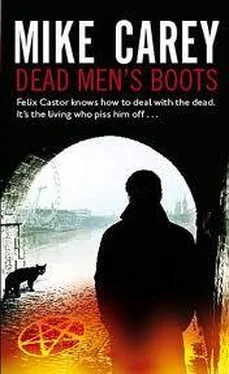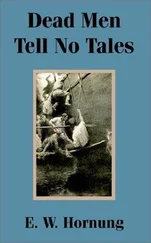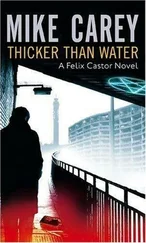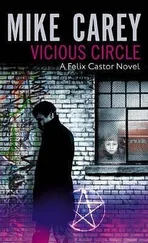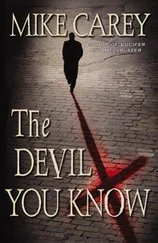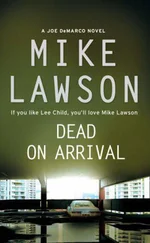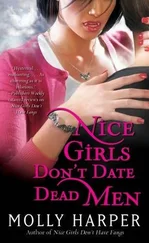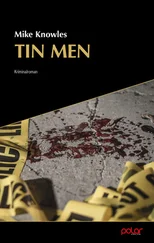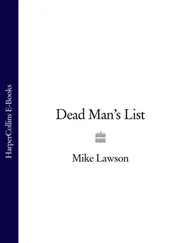The twenty-sixth of January. Sometime after four p.m. A man named Alastair Barnard, age forty-nine, checked into a hotel room in King’s Cross, along with another, younger man – this other man described as having close-cropped mid-brown hair and brown eyes, and wearing a black donkey jacket with a green paint stain on the left sleeve. The hotel in question was the Paragon: it rents by the hour, because the clientele it caters to are the prostitutes who work the back streets off Goods Way and Battle Bridge Road.
The desk clerk, one Christopher Merrill, gave them a key – room seventeen, which offers a fine view of the freight yard. He assumed that the younger man was a rent boy bringing his work in off the streets: but he didn’t ask any questions or make any small talk, because you don’t mess with your core business.
Normally the clerk would have expected to see the two men emerge again half an hour later and walk away in different directions. In this case that didn’t happen, but the clerk didn’t see anything unusual in that because he’d forgotten all about them. It was a Friday afternoon and there were a lot of comings and goings: nothing compared to the traffic that would be coming through later in the evening, but plenty to keep him busy.
But when nine o’clock rolled around and the pressure on the rooms started building up, he noticed that that key was still out. Five hours? Even with a double dose of Viagra and a pint of amyl nitrate, nobody can keep it up that long. And now they owed him money, because they’d only paid for an hour. With the sour suspicion that the men had fucked and run, he summoned the cleaner, Joseph Onugeta, who was the only other guy on the Paragon’s daytime staff. Together they took the master key up to the first floor and unlocked the door.
‘Barnard was on the floor,’ Jan said, frowning slightly as though she was quoting from memory. ‘He’d fallen off the bed, and he’d brought the sheets and the coverlet with him. He was all tangled up in them so you could only see him from the waist up. His head had been smashed into pulp.’
The desk clerk started screaming, which brought people running from the other rooms. Most of them took one look at the devastation and fled. None had come forward since. It was the cleaner who called the police, explaining in heavily accented English that there’d been an accident of some kind and a man was dead.
The cops dismissed the accident hypothesis as soon as they walked in the door. Barnard had been hit more than two dozen times with something hard and heavy, wielded with frenzied energy. Other things – crueller and sicker things – had been done to him too, presumably before that. He’d died on his stomach, crawling across the floor away from the bed, trying to make it to the door.
As far as the damage to his skull went, there were two different kinds of wound. Some of them had been made with something blunt and round-ended: some were narrower and had penetrated right through the bone instead of impacting on it. Pre-empting the forensics team who arrived later, one of the uniformed constables – the only one with the stomach to get close enough to see – immediately and confidently predicted that when the implement used on Mister Barnard was found, it would turn out to have been a claw hammer.
‘Was he right?’ I asked.
Jan halted in her recitation, which had assumed a deadpan, running-on-automatic quality. ‘They haven’t found it yet,’ she said. ‘Why?’
‘If the weapon was a hammer,’ I said, picking my words carefully, ‘I guess you’re talking about a certain degree of premeditation. It couldn’t have been a . . . crime of passion, a spur-of-the-moment kind of thing. The killer brought the weapon in with him.’
I was aware that I’d used the male pronoun, not the female. But unless I’d miscounted somewhere, there wasn’t a woman in the case yet. In fact, if memory served-
‘You mentioned sexual assault,’ I said. ‘Sexual assault and murder.’
Jan nodded. ‘This man – Barnard – he’d had what they call “receptive anal sex”. And it had been rough.’
‘Rough enough to have been non-consensual?’
‘Rough enough to raise a doubt. There was . . . damage.’
It was time for the make-or-break question. ‘Where does Doug fit into all this?’
Jan dropped her gaze to the table, where the photo of her husband was still lying. ‘He hadn’t even gone a hundred yards,’ she said, almost matter-of-factly. ‘He had blood all over him, so people were staring at him, getting out of his way. Someone called the police, and they just routed the call to one of the cars that had been sent out to the Paragon. When the squad car got to Cheney Road they didn’t even have to ask – people saw them coming along the road, pointed the way, and they found Doug sitting on the edge of the pavement, a block up from the station. Just sitting there, staring at his hands like he couldn’t believe what he was seeing. They brought him in right there. Then they got a DNA match and they charged him.’
‘A DNA match?’ I echoed. ‘Then—’
She didn’t flinch: under the circumstances that was mightily impressive. ‘Yes. It was my husband’s semen they found inside Alastair Barnard.’
I turned the expression ‘open-and-shut case’ over in my mind, checking to make sure that it had no sordid double meanings that would make it inadvisable to use. Before I could say it, though, Jan was carrying on at a rush.
‘There’s no denying that part of it,’ she said. ‘Doug had sex with this man. I suppose he went there, to that hotel, specifically to do that. But I don’t believe he killed anyone, Mister Castor. I don’t believe he’s even capable of doing that.
‘We’ve been married three years now, and he’s – despite the way he looks, despite the way he was brought up – he’s the gentlest man I ever met. Really. He’s six foot three, he works as a brickie and he used to box, but really, he is. If he gets angry, he turns it on himself. He never even shouts. Doug could no more kill someone than you or I could.’
I let that straight line sail right on by. It’s true that I never pointed a gun at someone and pulled the trigger; or tenderised anyone with a claw hammer either, for that matter. But I’d done things that had led to people dying, and I’d done them with my eyes open. It was enough to give me a twinge of unease as I listened to Jan Hunter protesting her husband’s innocence on the basis that he was always nice to her.
‘Did you know that he was bi?’ I asked.
Jan shook her head violently. ‘No. No, I didn’t. But in the last few months I knew I wasn’t satisfying him. We were scarcely ever together. He didn’t want to touch me, although he was still . . . he still seemed to love me. There was just something he couldn’t tell me. I’d wake up in the night sometimes and I’d hear him crying in the dark. Sometimes I’d doze off and wake up again, and it would be hours later. But I’d still hear the same sounds. He was just crying and crying, all through the night. Something was eating away at him. Something he couldn’t share.
‘I’d started to think he had to be seeing someone else. It was the only explanation that made any sense. He was working on a big site over in East London – they’re building one of those new super-casinos – and he was coming home later and later. Overtime, he said, but there’s never that much overtime to go round in the winter. You can’t mix cement in the dark.
‘And then, before the murder, he didn’t even come home for a week. I hadn’t seen him. He hadn’t called, or . . .’ Jan’s voice trailed off. She stared at me, her expression bleak. ‘I was waiting for bad news. Just not this kind.’
Face to face with her grief and her pain, I opened my mouth to tell her that I didn’t think I could help her. That I couldn’t think of anything that would get her husband off a rap as solid as this. She saw my expression and forestalled me.
Читать дальше
